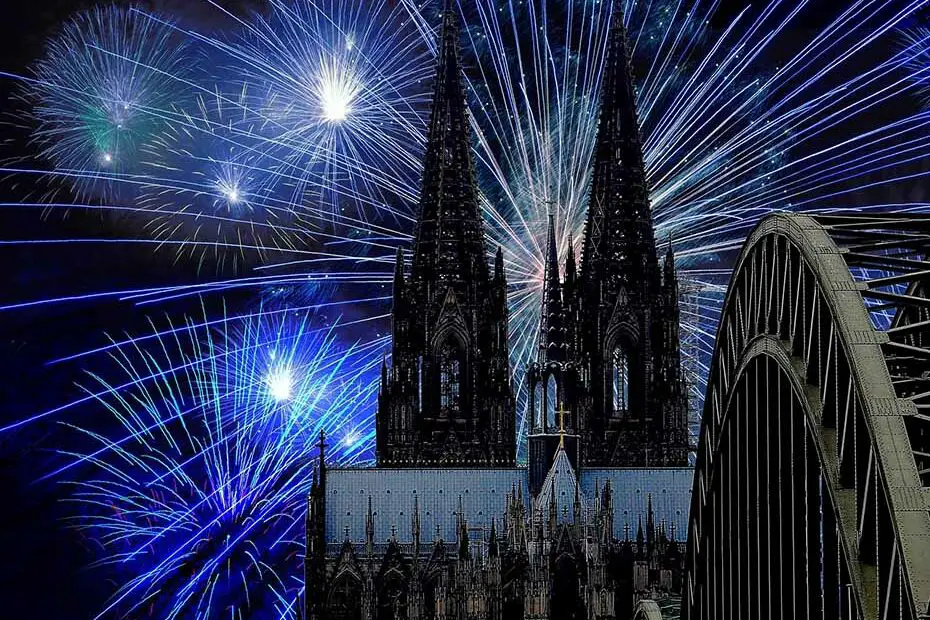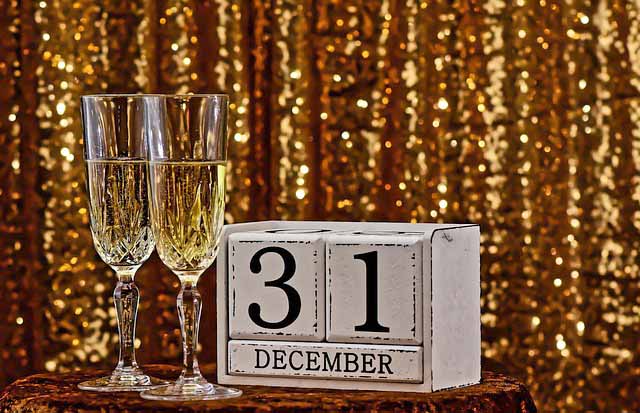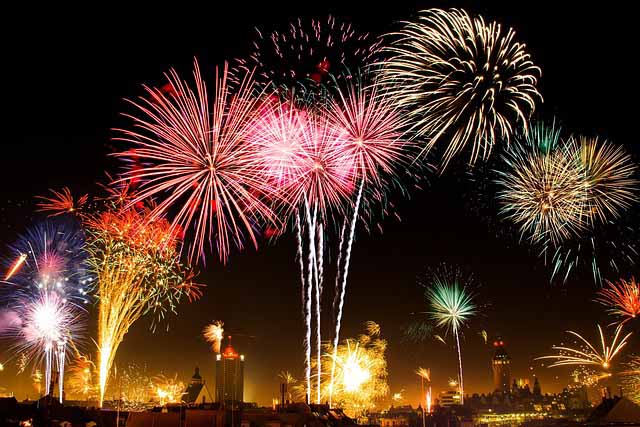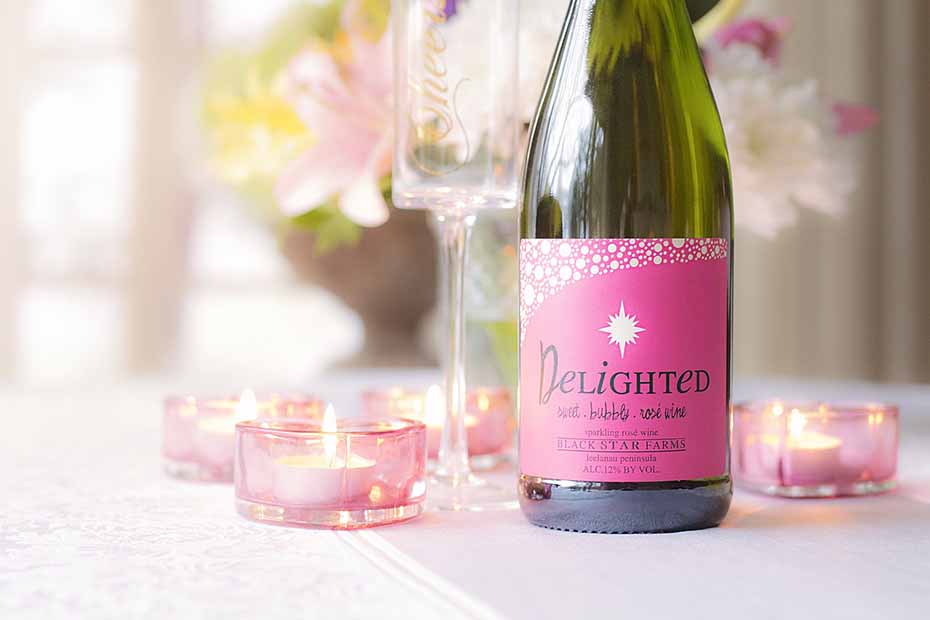You want to write a New Year card to a German speaking person and you are looking for the right words? “Kein Problem” as they would say in German speaking countries, or “no problem” in English. In this post we cover all the usual new year’s greetings in German. And we talk about the typical new year’s traditions in Germany. So let’s get going.
What is New Year in German?
The German word for New Year is Neujahr, when you refer to the first day of they year. When you mean the coming year, the correct translation is neues Jahr.
The equivalent of “New Year’s Eve” in the German language is Silvester (written with an “i”, not “y”).
How to say Happy New Year in German speaking countries
The typical German New Year’s wishes are:
Frohes neues Jahr! — Happy New Year!
Ein frohes neues Jahr, mein Freund! — A happy New Year, my friend!
Prost Neujahr (or Prosit Neujahr) — Cheers New Year!
Ein frohes und gesundes neues Jahr! — A happy and healthy New Year!
Ein gutes neues Jahr! — A good New Year!
In case you prefer written New Year greetings, you can use these German phrases:
Ein frohes neues Jahr! — A happy New Year!
Einen guten Rutsch ins neue Jahr! — literal translation: A good slide into the New Year!
Fröhliche Weihnachten und ein frohes neues Jahr! — Merry Christmas and a Happy New Year!
How do Germans celebrate New Year?
People usually assemble friends and family in their houses at dinner time. The food mostly consists of dishes which can be prepared ahead, like smoked salmon with bread, sausages with potato salad or fondue. And often there’s a cracker on each plate, which the British know as Christmas crackers. Well the Germans do the same, just on New Year’s eve.
After dinner, the evening is spent playing board games, dancing to pop music, or simply making small talk. Often, a lot of alcohol is consumed during this time. People in their twenties or thirties often prefer to go to a party or go clubbing instead.
Then, when the clock strikes midnight, people toast, usually with champagne and shout Prost Neujahr (cheers New Year) to wish each other a happy New Year in German. In some areas the church bells ring to chime in the New Year. Shortly after, everyone dresses warmly and rushes outside to watch the fireworks.
New Year’s Traditions in Germany
There are numerous traditions involved when it comes to a German New Year’s Eve.
Of course there’s the usual new year’s resolutions. These don’t differ from most countries:
- losing weight (abnehmen)
- quit smoking (mit dem Rauchen aufhören)
- less alcohol (weniger Alkohol)
- more sports (mehr Sport machen)
Other traditions are quintessentially German. Some of them are only local, but the following ones apply more or less for the whole country (which doesn’t mean everyone joins in, but you will find many people adhere to these customs).
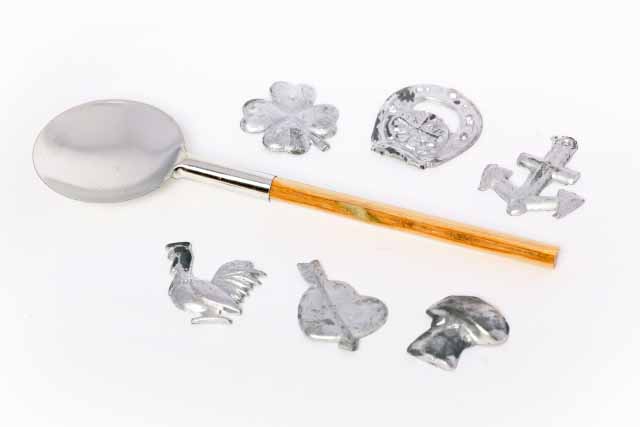
Lead Casting
Lead casting is a very old custom, which is nowadays no longer allowed due to health concerns. But the tradition continues with pewter (or candle wax for small children) and is very popular, especially with the kids. A small pewter figure is melted in a spoon over a candle flame and poured into cold water. The shape that forms in the water is used to cast a shadow on the wall and whatever the shadow shows, indicates your future for the coming year. Of course you can hold your form anyway you like, so you’re holding your future in your own hands, so to speak, and can adjust the shadow according to your New Year wishes.
Fireworks
The authorities may have banned lead casting, but they seem to be powerless against this custom. There are rockets, bangers, crackers and howlers. Every year, Germans shoot millions of euros into the sky. Some fireworks manufacturers live mainly from the sales for this one night.
But this custom also causes house fires, and hospitals and fire departments report people with serious burn injuries every year, but that doesn’t stop Germans from setting off their fireworks on New Year’s Eve. To be fair, most of the accidents could have been avoided if those involved had drank a little less.
Piglets as lucky Charms
People also like to bring each other little pots with four-leaved clover for good fortune, often decorated with little figurines. These are either chimney sweepers or little piglets, as both of these symbols mean good luck, as does the four-leaved clover.
Die Rauhnächte – The rough Nights
The twelve nights between Christmas Eve and Epiphany are called “Rauhnächte” in Germany (also Raunächte or Rauchnächte).
They are considered to be special, as they are the result of the difference between the lunar calendar of the old Germanic tribes with 354 days and the Julian calendar of the old Caesar with its 365 days. This leaves 11 “dead days” (and thus 12 nights), which for the Germanic peoples were outside their time.
In their imagination, the boundaries between our world and the spirit world were fluid during this period and strong spiritual powers prevailed on earth. You could consult all kinds of oracles to find out about your future, and young women stood at a crossroads at midnight to see the figure of the man they would marry pass by. Sort of like Tinder in its early beta stage.
The Wild Hunt
During the rough nights, the “wild hunt” also raged across the sky. This bunch consisted of all kinds of demons as well as the poor souls of those who had died violently or “before their time”. They were led (depending on the region) by Wotan / Odin and Huldra / Frau Holle. Frau Holle also liked to ride on her lucky pig (which she shares with her Nordic equivalent Freya, whose boar is also called “Hildeswin”).
The wild hunt was not directly hostile to humans. But anyone who looked at them could be carried away and had to travel across the sky with them for years before they were allowed to return home.
That’s why windows and doors were locked especially tight on these nights and small children were told not to go outside under any circumstances. Which is generally advisable on cold winter nights.
It was also frowned upon to hang washed sheets outside during this time. Because the wild hunt could get caught in them. And out of their anger, the spirits would steal one of the sheets and bring it back the next year as a burial sheet. There are regions in Germany where, to this day, no laundry is washed during the rough nights, because it is said to bring bad luck.
Depending on the region, these evil spirits could be kept away by loud noises, like firing firecrackers, ringing bells or making noise, for example with pots and bowls (as in the North German Rummelpottlaufen).
Traditions for Generations
So if you’ve ever wondered why Germans cling so stubbornly to firecrackers on New Year’s Eve, why they try to find out about their future by pouring lead into cold water or why they give each other little pigs as lucky charms, you’ll find the answers to all these questions in the customs of the Rauhnächte. All of these German traditions go back for centuries and are deeply engraved in the peoples DNA.
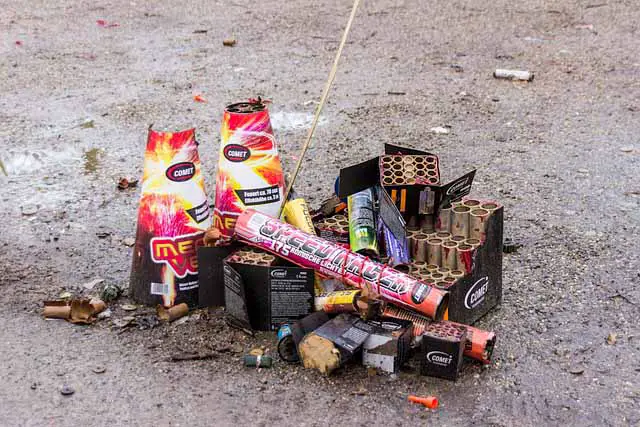
One last New Year’s Eve tradition: Watching “Dinner for One” on TV
The most recent and most peculiar tradition involves a British comedy sketch filmed in back and white in 1963. It only lasts 18 minutes and shows British comedian Freddie Frinton playing a butler for an elderly lady. It’s her 90th birthday and as all of her friends have died before her, she’s sitting alone at the dinner table which is set for 5 people. So the butler not only has to serve dinner, he also has to take on the roles of the four gentlemen who are no longer available. Which mainly means giving a toast to the lady of the house with every course of the meal. For each of the four absent gentlemen.
This, of course, leads to the butler becoming increasingly drunk. He seems to be well aware of the course of the evening, as he asks his ladyship before each course “The same procedure as last year, Miss Sophie?” To which she sternly replies “The same procedure as every year, James!”
Freddie Frinton played this sketch in shows in Blackpool, where he was discovered by a German author and a German director looking for new talents. They invited him to come to Germany and turn his sketch into a TV version. Frinton wasn’t very fond of Germans as he served as troop support during the second world war, but in the end he agreed. But he categorically refused to do the sketch in German. So the show was filmed and broadcast in English with only a German introduction.
It became so popular with the German audience that it has been on TV every New Year’s eve for the past 50 years since 1972.
It is ironic that Frinton’s biggest success was in a country he didn’t even like.
Conclusion
As you can see, while Germans are usually described as rational and not very emotional, they do have a lot of customs and traditions that they are attached to and cherish (even if they sometimes don’t know their origins anymore).
An now, all that’s left for me to do is to wish you all a Happy New Year in German:
Ein frohes neues Jahr und mögen sich alle eure Wünsche erfüllen!
A happy New Year and may all your wishes come true!
